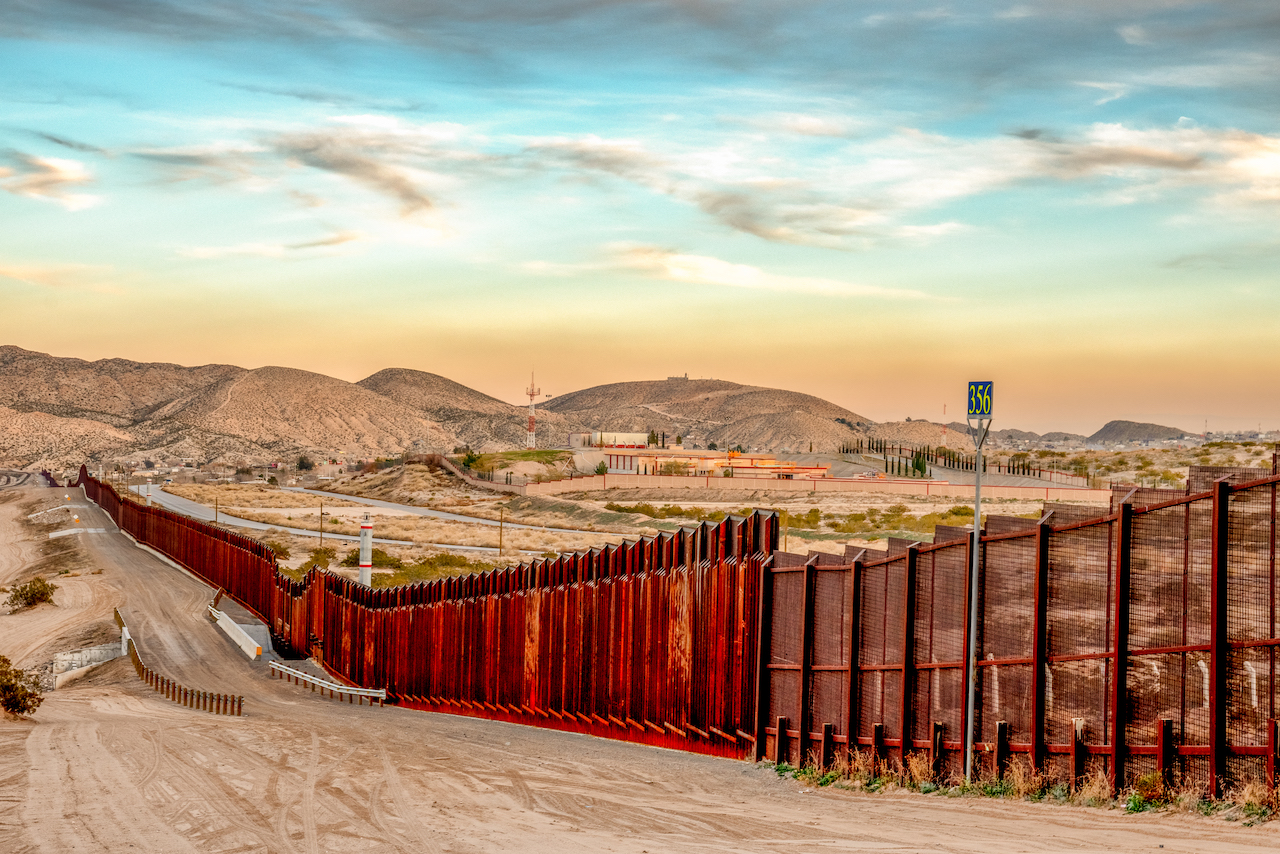Tell them: we do not negotiate with ostracists.
Defining Islamophobia

This new category was invented to dodge uncomfortable geopolitical realities.
When Joe Biden gave an address to the nation calling for continued support for both Israel and Ukraine in the wake of the October 7 terrorist attack on Israel, he was careful to balance his warning against growing domestic anti-Semitism with an admonition concerning the dangers of “Islamophobia.” Echoing the President, White House Secretary Karine Jean-Pierre essentially dismissed the growing number of antisemitic rallies and direct offenses against Jews by stressing that Muslims “have endured a disproportionate number of hate-fueled attacks.” She offered no evidence for this assertion, and the only recent instance anyone might cite is the case of an American lunatic who stabbed a little boy to death.
Such claims are essential for Democratic politicians who want to express sympathy for 1,400 victims of Hamas’s attack while maintaining nonpartisan bona fides as opponents of Islamophobia as well. But what is Islamophobia, and is it in any way comparable to antisemitism? A “phobia,” literally, is an irrational fear. But was the fear of Muslims in the wake of the September 11 attacks, along with multiple other instances of Islamic terrorism in the years preceding the attacks (the bombing of the U.S.S. Cole, our embassies in Africa, and the U.S. base in Khobar Towers, Saudi Arabia) – to say nothing of the repeated determination of the Iranian mullahs to destroy the “big Satan,” the United States, just as soon as they finish off the elimination of the “little Satan,” Israel – simply irrational? This leaves aside Muslim terror attacks in Britain, France, and Belgium over the past three decades.
Violence is endemic to modern Islam. This does not mean that most Muslims are violent, or even that traditional Islam is necessarily violent. But with the limited exception of attacks by Israeli settlers in the West Bank on their Arab neighbors, who could seriously maintain that Judaism is a religion of terror, or that fear of Jewish violence is the root of antisemitism, now or in the past?
Antisemitism, going back to the beginnings of the Christian era, had its roots in some combination of theological ire – the Jews allegedly being responsible for killing Christ, and the persistence of their faith seeming to belie the claim of the Christian religion to have supplanted it – and envy of their commercial success. Being forbidden, in those Christian countries that tolerated their existence, from large-scale landowning, government, and the military, Jews focused their energies on commerce as a means of survival. Commerce, of course, went hand in hand with moneylending – a practice officially forbidden to Christians as usury, but essential to the operation of business and large-scale landowning. This led to a practice described by the liberal political philosopher Montesquieu in Book 21, chapter 20 of The Spirit of the Laws: having banned their Christian subjects from lending money on the advice of “the schoolmen,” kings allowed Jews to engage in it – only to torture them to extract their wealth when the rulers needed it, so as to avoid having to tax their subjects.
In Montesquieu’s partly fictionalized account, the rulers’ barbarism towards the Jews turned against them, since it compelled the Jews to invent “letters of exchange,” something like checking accounts, as a substitute for physical wealth that could be confiscated. In turn, kings were compelled by their very greed to moderate their cruelties, and it came to be known that “only the goodness of government brings prosperity.” Commerce encourages tolerance.
Not all European rulers embraced this dynamic. The Spanish relied on the conquest of the Americas and the enslavement of its natives to ship back gold and silver to the mother country. Like those who today seek to promote prosperity through runaway government spending that puts more money in people’s hands, the Spanish rulers mistook the sign of wealth –precious metals – for real wealth, which results from productive activity, promoted by commerce. The consequence was runaway inflation and Spain’s decline from the pinnacle of world power to relative insignificance.
No matter how many times Montesquieu’s lesson is demonstrated by experience to be true – witness the enormous prosperity gained by modern commercial republics since the late eighteenth century based on the principles espoused by Locke and Adam Smith along with the great Frenchman – there will always be peoples who will despise the pursuit of wealth through commerce, in contrast both to the lives of noblemen, whose inherited wealth enables them to scorn it, and those of yeoman farmers or handicraftsmen, whose means of earning money seems more “natural.” (The latter is the sense, as Montesquieu observes, that medieval schoolmen derived from a superficial reading of Aristotle’s Politics.) In fact, both the professed democratic partisan Thomas Jefferson and the most influential enemy of liberal democracy Karl Marx agreed in their contempt for commerce and banking. Jefferson – a wealthy landowner (and large-scale slaveowner) who did no known physical labor of his own, nonetheless maintained that those who labor in the fields are the earth’s “chosen people,” and aspired – in opposition to his bete noire Alexander Hamilton – to see the United States remain a primarily agrarian nation, with commerce only its “handmaid.” (Hamilton, by contrast, rightly saw in commerce the means to elevating the common people’s standard of living and raising the country to a world power.)
For his part Marx – the descendant of rabbis – devoted his first major writings to a pair of essays on the “Jewish Question,” in which he portrayed money as “the jealous god of Israel, beside which no other god may exist,” “abasing” all other gods and “corrupting” Christians into believing that their only destiny was to become richer than others. Hence his solution to the Jewish “problem” was to eliminate “both the Jew and his religion.” (Like Jefferson, whose spendthrift ways kept him always in debt, Marx too passionately hated moneylenders, suffering from similar cash shortages.)
When Mark Twain visited the Holy Land, he found it a barren, depressing place. As the Jews increased their migration there in the twentieth century, they labored to “make the desert bloom,” and succeeded in doing so. By the last decades of that century and into the present, they expanded their enterprise – once freed from the deadening hand of socialist policies that had been imposed by Labor governments for almost forty years following independence – into science and technology, turning Israel into what commentator Dan Senor termed “Startup Nation.”
Meanwhile the local Arab population was doing very little. After losing their unsuccessful battle in 1948 to prevent the Jews from establishing a tiny state of their own, those Arabs who migrated to the West Bank and Gaza remained, for the past 75 years, enclosed in “refugee” camps maintained (with major assistance from U.S. taxpayers) by the U.N., focusing their energies not on economic development, but on the determination to regain “their” land from the Jews. Their resentment was maintained at a fever pitch by despotic demagogues, along with an “educational” system that indoctrinates children with the most vicious sort of anti-Semitism. (When the Jews withdrew entirely from Gaza in 2005, they left behind greenhouses for the Arabs, who promptly sold them for scrap.)
Israelis, having finally regained a land of their own, have repeatedly demonstrated a fierce determination to defend it. Arab citizens of the country enjoy constitutional rights of a kind unparalleled anywhere in the Muslim world.
Islamophobia is a propaganda term which entered wide usage in the Anglophone world no earlier than the eighties. Unlike antisemitism, it does not describe a system or pattern of oppression or hatred that has affected many people throughout history. There has been no collective anti-Muslim violence in the West for several centuries; to the contrary, millions of Muslim migrants have been welcomed into Europe and the Anglosphere in the last 50 years, and any discrimination against them has been prosecuted. In short, it is grotesque and absurd to compare antisemitism and Islamophobia in the manner of Karine Jean-Pierre, along with numerous journalists and academics.
The American Mind presents a range of perspectives. Views are writers’ own and do not necessarily represent those of The Claremont Institute.
The American Mind is a publication of the Claremont Institute, a non-profit 501(c)(3) organization, dedicated to restoring the principles of the American Founding to their rightful, preeminent authority in our national life. Interested in supporting our work? Gifts to the Claremont Institute are tax-deductible.
BLM and Antifa are determined to bring the country to its knees. We should act accordingly.
Two wheels of extremism run roughshod over the West’s foundational rights.



